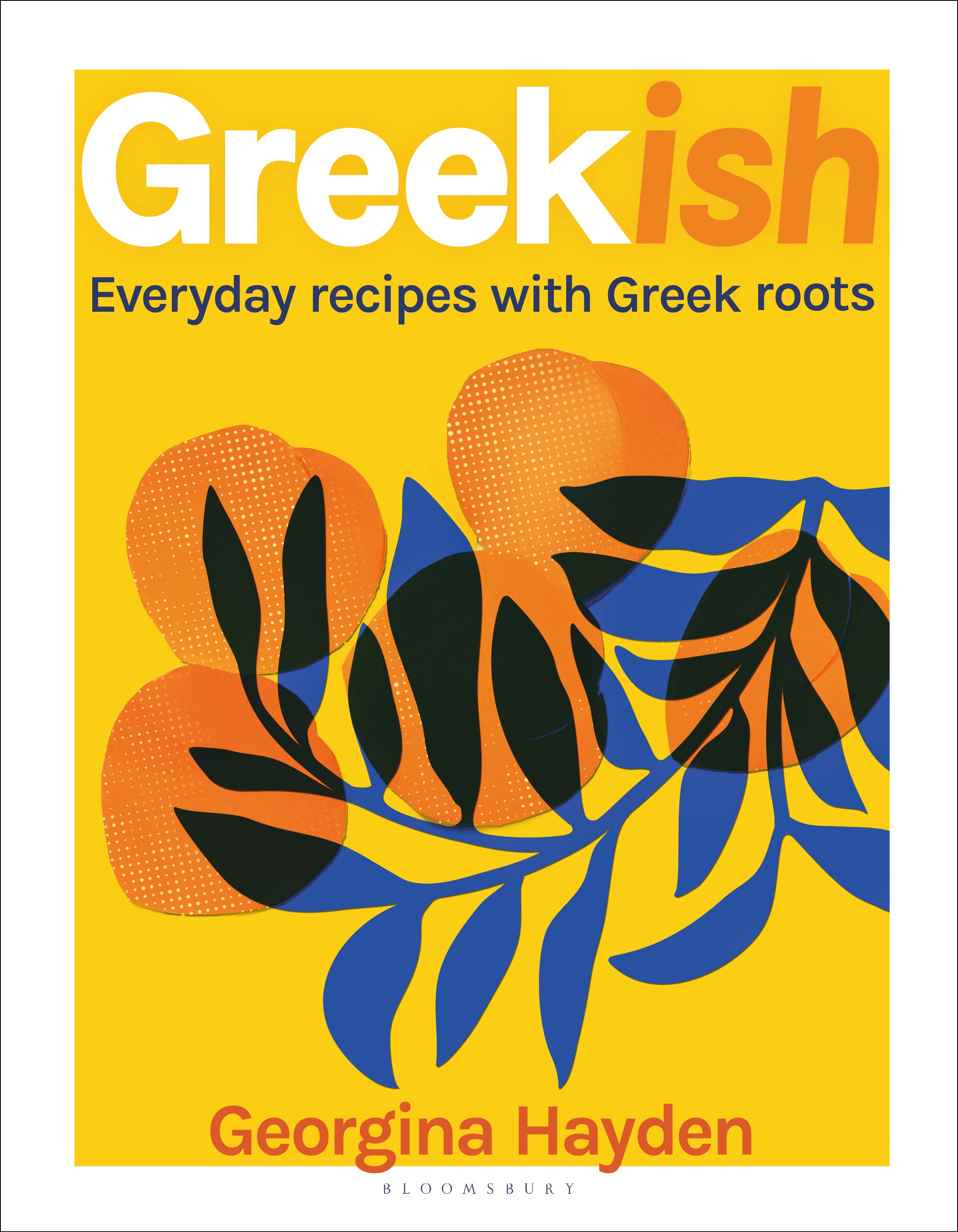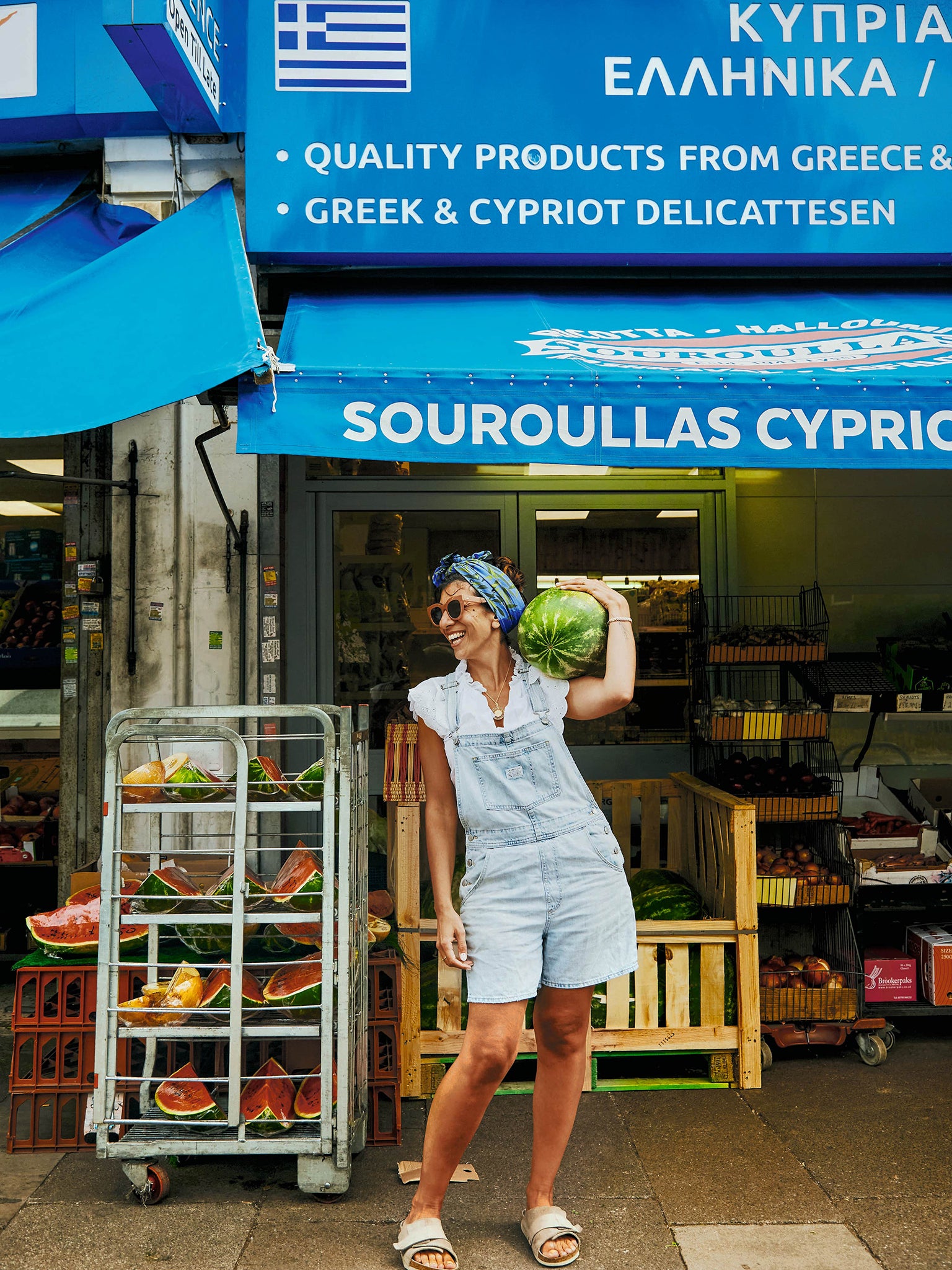Move over Italian and French food – Greek cuisine is having a moment
Food writer Georgina Hayden tells Prudence Wade about why her food philosophy is ‘Greekish’

French and Italian cuisines have long dominated the food landscape.
Greek food doesn’t traditionally have quite the same reputation, and while food writer Georgina Hayden is well aware of the stereotypes, that’s something she’s keen on changing.
“For a very long time, Greek food was just seen as kebabs, meat on sticks – which is delicious, we love a kebab, don’t get me wrong. But at the same time, that’s all it was – quite greasy, dirty food,” Hayden says.
For Greek-Cypriot Hayden, who lives in London, Greek food hasn’t been afforded the same range as other European cuisines.
“I’ve thought a lot about why Italian food is elevated. Italian food can be very every day, but you have very fancy Italian restaurants – and Italian holidays are very special, aren’t they? But for a long time, you had Greek package holidays – and there’s nothing wrong with that.
“But I think the reason Greek food was misunderstood for a long time, is because I grew up in an era of Teletext Holidays and cheap holidays.”
Hayden, 41, suggests Greece became associated with budget holidays – and while the locations might have been beautiful, the strips and accommodations didn’t necessarily reflect that, and that reputation carried over to food.

But now, there’s something of a change happening. “Greek foods are having a real moment,” Hayden, who worked with Jamie Oliver for over a decade, adds.
“We’re definitely seeing an influx of really high-end – again, it’s not that I need or want food to be posh or fancy. It’s just having a spectrum and a range – if you want to have high end-Greek, now you can. If you want middle and cheaper, you can.”
While she accepts that Greek cuisine loves “our grills and our meat”, she says: “This isn’t the only thing… We love lentils, a lot of pulses, a lot of vegetables and salads. Actually, dare I say, if you’re vegetarian, you would be laughing if you went to Greece, you would have such a range of things you could eat there.”
So if you were to start cooking a bit more Greek food at home, where should you start?
Hayden’s new cookbook, Greekish, has a chapter dedicated to “things on sticks”, and for her, this is a great jumping off point. These recipes do very much what they say on the tin – you spear some kind of protein on a stick, be it meat, fish or something like mushrooms, and make a “cracking marinade” to go with it, served with pita bread from the supermarket.
And for Hayden, “Greekish” is the best way to describe her food. “It works on a lot of levels, in the fact that the food is Greek-inspired, as opposed to incredibly authentic,” she notes, which is different to her previous two cookbooks – the last, Nistisima, putting the spotlight on food eaten by Orthodox people during Lent.
This time round, “They’re Greek recipes, but they’re my recipes,” she says. “So there’s an ‘ish’ to them. No one could argue that it might not be the way their granny makes, or the way their mum makes it – that’s where the ‘ish’ comes from.

“But there’s also lots of other ways that it becomes relevant – the fact that I’m Greek Cypriot. Cyprus is a divided island, so the food that I’ve grown up with spans both Greek and Cyprus. I’m Greek, Cypriot – the food is kind of ‘ish’.
“So there’s a looseness that comes with being from this island that’s quite far away from the mainland.”
Plus, the book is dedicated to her two daughters, Persephone, six, and Elektra, three.
“They are ‘Greekish’, they’re half me – Greek Cypriot – and they’re half their dad, who is English-Irish. It’s that second generation, mish-mash of cultures that I think we’re seeing now through a lot of food writers, but also certainly the way I cook and live my life. It’s all becoming a nice amalgamation of different cuisines and cultures.”
Few dishes sum up Hayden’s ethos better than the baklava cheesecake. “People are familiar with baklava, they know cheesecake – but we put the two together,” she explains.
“I know there are variations out there and I’m not the first to make it, but my version is a bit different – there’s a whole pack of feta in the filling, which gives this really delicious, salty-sweet [taste].”
When Hayden served this cheesecake up to her 83-year-old yia yia (her grandmother), she got the best feedback possible.
“I sliced it and gave her the first slice and she stared at it very intently… She looked at me and she was shaking her head, which means she had nothing to say to me. Not one bad thing to say to me – and that’s a very rare occurrence,” Hayden remembers.
“The reason I remember it so clearly is because I’m not convinced it’s ever happened otherwise – trust me, my family will definitely tell me everything they think about everything. No one could tell me my baklava cheesecake isn’t good, because my yia yia has spoken.”
And because she’s not drawing on traditional dishes, Hayden’s a bit more nervous about releasing this cookbook into the world.
“Relying on tradition or existing recipes, a lot of the time that can make your life easier, to be honest, because you are referring to things that you’ve read elsewhere or you’ve learned elsewhere. So this one is me in all my glory out there, just waiting for the attack really – it’s like I’ve got nothing to hide behind, which is scary but also really exhilarating.”
‘Greekish: Everyday Recipes With Greek Roots’ by Georgina Hayden (Bloomsbury, £26).
Join our commenting forum
Join thought-provoking conversations, follow other Independent readers and see their replies
Comments
Bookmark popover
Removed from bookmarks